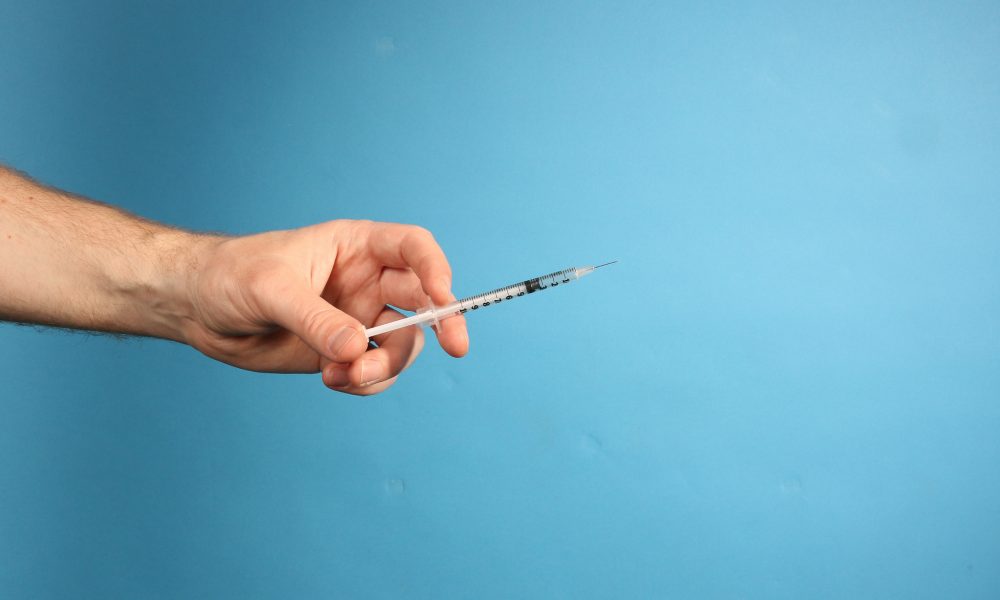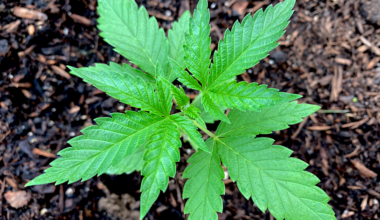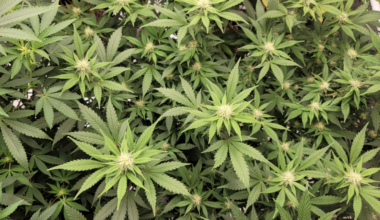A California Assembly committee on Wednesday approved a Senate-passed bill that would establish a pilot program to allow certain jurisdictions throughout the state to authorize safe consumption sites where people could use currently illicit drugs in a medically supervised environment.
The harm reduction legislation from Sen. Scott Wiener (D) was first introduced in December 2020 and advanced through the full Senate in April of last year before being transmitted to the Assembly, where it’s since been approved by the Health Committee and has now passed out of the Public Safety Committee in a 5-2 vote on Wednesday.
Our bill to authorize safe consumption sites in San Francisco, Los Angeles & Oakland (SB 57) just passed its final committee & now heads to the full Assembly.
Safe consumption sites are a proven strategy to reduce overdose deaths & infections & help get people into recovery.
— Senator Scott Wiener (@Scott_Wiener) June 1, 2022
The legislation now goes to the Assembly floor, but if approved there it will still need to go back to the Senate for concurrence before potentially heading to the governor’s desk because amendments have been made since the chamber of origin first passed it.
Wiener, who has championed several drug policy reform bills in the legislation, including one to legalize possession of psychedelics that’s sat in legislative limbo since clearing the Senate, said on Wednesday that “we are experiencing a crisis of overdose deaths, and these are preventable.”
He told committee members ahead of the vote that safe consumption sites “allow people who are already using drugs—often on our streets, on our sidewalks, in front of people’s homes or businesses where people, including children, can see them using drugs” to instead “go inside to a safe and clean space where they can bring the drugs they were already going to use and use it in an environment where we make sure that they have clean needles, where there’s supervision.”
—
Marijuana Moment is already tracking more than 1,000 cannabis, psychedelics and drug policy bills in state legislatures and Congress this year. Patreon supporters pledging at least $25/month get access to our interactive maps, charts and hearing calendar so they don’t miss any developments.![]()
Learn more about our marijuana bill tracker and become a supporter on Patreon to get access.
—
“If someone overdoses, the overdose can be quickly reversed,” he said, adding that authorizing these facilities means “we can connect people to services and, ultimately, for a significant percentage of people, recovery services.”
As the senator pointed out, these types of programs have precedent, with other countries having already effectively demonstrated that they can save lives. Despite federal obstacles, New York City became the first city in the U.S. to sanction safe consumption sites, and officials have touted the early results.
An attempt by an non-profit organization to open such a facility in Philadelphia did prompt the Justice Department under the Trump administration to litigate its establishment in an ongoing case, but plaintiffs say that the government actually seems that it may be amenable to shifting its course as it pushes for a harm reduction approach to the drug crisis.
DOJ said in February that it is actively “evaluating supervised consumption sites, including discussions with state and local regulators about appropriate guardrails for such sites, as part of an overall approach to harm reduction and public safety.”
Not only do safe consumption sites help minimize overdose deaths, but they can also reduce the spread of diseases like HIV and limit syringe litter in public spaces, Wiener said.
“In the virtual absence of significant risks—direct risks like increased drug use, drug sales or crime, we’re seeing the federal government—even, imagine that, the U.S. federal government started to warm up to this approach,” the senator said. “So this is not some new, untested strategy. This is a strategy that’s been around for a long time. We know it works. We know it saves lives.”
The sponsor’s bill would not impose safe consumption sites on any jurisdictions. In fact, only San Francisco, Los Angeles, Los Angeles County and Oakland would be eligible to participate in the volunteer pilot program, starting on January 1, 2028.
“The bill would require all local jurisdictions that choose to participate in the overdose prevention program to confer and choose a single independent entity, as specified, to conduct a peer-reviewed study, funded by the participating jurisdictions, of the statewide efficacy of the overdose prevention programs and the community impacts of the programs, to be submitted to the Legislature and the Governor’s office on or before January 15, 2027,” a summary says.
California, we need to act now.
We can’t listen to reactionary voices trying to score political points by devaluing & demeaning people suffering from addiction.
LA, SF and Oakland *want* to open these sites. Let’s let them.
It’s time to do this.
— Senator Scott Wiener (@Scott_Wiener) June 1, 2022
A poll released in April found that a majority of Americans (64 percent) support allowing safe consumption sites.
Meanwhile, a New York Assembly committee recently advanced a bill to establish a statewide safe consumption site program, allowing regulators to authorize the facilities.
Under the proposal, the New York Health Department and local agencies would have the ability to authorize overdose prevention centers and regulate them.
While the Biden administration has yet to take a specific position on policy proposals to authorize safe consumption facilities, the National Institutes of Health (NIH) put out a pair of requests for applications (RFAs) in December for an effort that will provide funding for efforts to investigate how that and other harm reduction policies could help address the drug crisis.
National Institute on Drug Abuse (NIDA) Director Nora Volkow has repeatedly expressed concerns about the harms caused by the criminalization of drug possession, and she told Marijuana Moment in an interview last year that she is open to continuing to explore “how these support systems as a community can help people, for example, engage in treatment, how they can prevent them from getting infected from HIV and how they can prevent them from overdosing and dying.”
Activists in several cities have attempted to establish harm reduction centers in recent years, citing promising results from programs that have been put into place in other countries like Canada and Australia.
In October, the Supreme Court rejected a request to hear a case on the legality of establishing the Safehouse facilities, but the case is still before a lower federal court.
The White House drug czar, Rahul Gupta, recently said that it’s critical to explore “any and every option” to reduce overdose deaths, and that could include allowing safe consumption sites for illegal substances if the evidence supports their efficacy.
The Office of National Drug Control Policy (ONDCP) director previously said that he couldn’t talk about the harm reduction centers due to the ongoing litigation related to Safehouse, but he seemed more open to the possibility in an interview with CNN late last year.
The secretary of the U.S. Department of Health and Human Services (HHS), Xavier Becerra, also recently signaled that the Biden administration would not move to block the establishment safe injection sites, stressing that “we are literally trying to give users a lifeline.”
But a department spokesperson later walked those remarks back, stating that “HHS does not have a position on supervised consumption sites” and the “issue is a matter of ongoing litigation.” In any case, it would be up to DOJ to decide whether to pursue operators of the facilities under the Controlled Substances Act.
Becerra was among eight top state law enforcement officials who filed an amicus brief in support of the Safehouse’s safe injection site plan when he served as California’s attorney general.
A coalition of 80 current and former prosecutors and law enforcement officials—including one who became Biden’s pick for U.S. attorney of Massachusetts—previously filed a brief urging the Supreme Court to take up Safehouse’s safe consumption case.
While New York City is the first to open the harm reduction centers, the governor of Rhode Island did sign a historic bill in July to establish a safe consumption site pilot program.
Massachusetts lawmakers advanced similar legislation last year, but it was not ultimately enacted.
Photo courtesy of Jernej Furman.
Medical Disclaimer:
The information provided in these blog posts is intended for general informational and educational purposes only. It is not a substitute for professional medical advice, diagnosis, or treatment. Always seek the advice of your physician or other qualified healthcare provider with any questions you may have regarding a medical condition. The use of any information provided in these blog posts is solely at your own risk. The authors and the website do not recommend or endorse any specific products, treatments, or procedures mentioned. Reliance on any information in these blog posts is solely at your own discretion.







